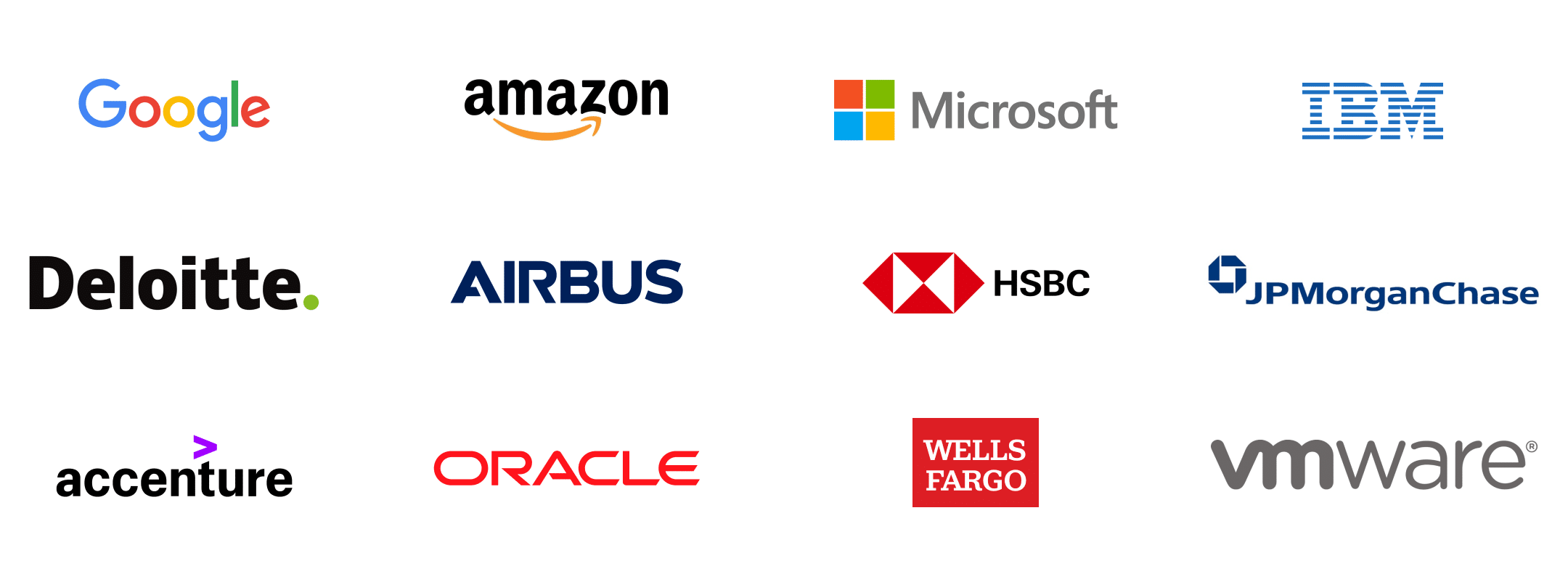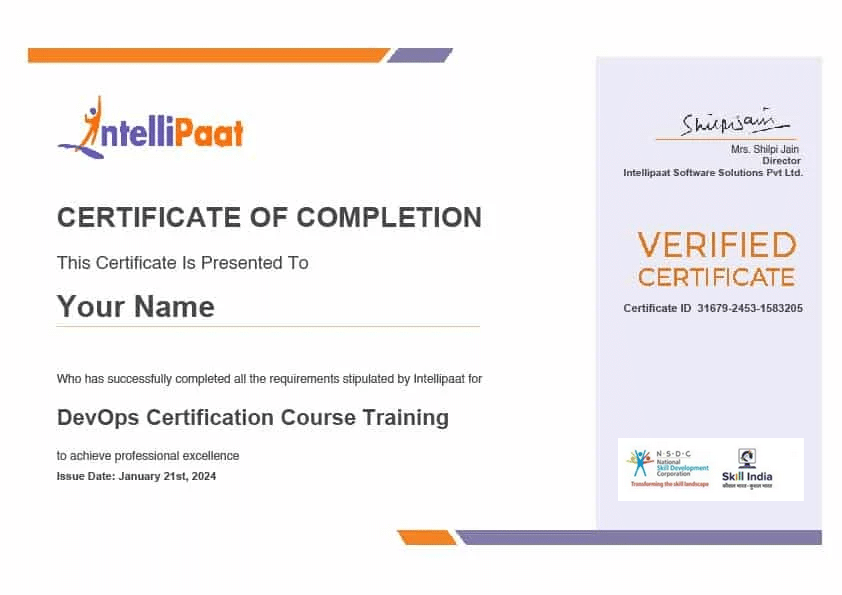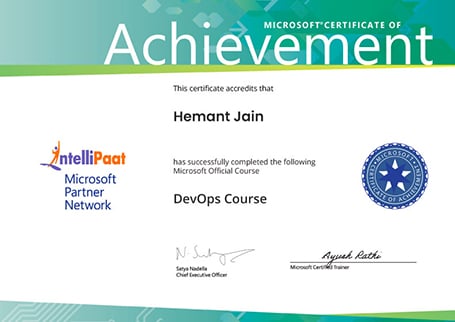Your cart is currently empty.
- Placement Assistance
- Exclusive access to Intellipaat Job portal
- Mock Interview Preparation
- 1 on 1 Career Mentoring Sessions
- Career Oriented Sessions
- Resume & LinkedIn Profile Building


60% Average Salary Hike
$1,08,000 Highest Salary
10,000+ Career Transitions
3100+ Hiring Partners
Career Transition Handbook
This DevOps Course, offered in collaboration with Microsoft, includes live online instructor-led classes. Participants will work on multiple projects and real-world case studies to gain the skills of a DevOps Engineer. You will also learn the latest Generative AI tools, along with DevSecOps practices along their application in this DevOps Training to stay ahead in the software industry.
On successful completion of the modules in this course, learners will obtain a DevOps Certification. This DevOps Course Certification will ensure that the learners are industry-ready from Day 1.

3 Hours By Industry Experts
Preview3 Hours By Industry Experts
3 Hours By Industry Experts
Preview3 Hours By Industry Experts
3 Hours By Industry Experts
3 Hours By Industry Experts
Preview3 Hours By Industry Experts
3 Hours By Industry Experts
3 Hours By Industry Experts
3 Hours By Industry Experts
3 Hours By Industry Experts
3 Hours By Industry Experts
3 Hours By Industry Experts
3 Hours By Industry Experts
3 Hours By Industry Experts
3 Hours By Industry Experts
3 Hours By Industry Experts
3 Hours By Industry Experts
DevOps Methodology
Continuous Integration
Continuous Delivery
Control Deployment
DevSecOps
Version Control Systems
DevOps Serverless
Architecture Infrastructure Provisioning
Microservices Configuration
Management Logging
Kubernetes for Continuous Orchestration
ELK for Continuous Monitoring
Terraform and Workspaces
Puppet and Ansible for Configuration Management
Selenium for Continuous Testing
Docker for Containerization
AWS DevOps
Maven
Generative AI in DevOps
Advanced CICD using GitLab
Software Composition Analysis
SAST
DAST
Kubernetes Security
Service Mesh
GitOps
Devops Projects
This certification program caters to working professionals across industries. The learner diversity adds richness to class discussions and interactions.
To take the admission in this Devops course, a simple 3-step process is to be followed. Only the candidates who will be shortlisted through this process can get admitted to the program.
DevOps combines IT operations with development to improve software delivery. It offers better team integration and faster delivery by automating the workflows that reduce delays and errors.
Even if you’re a beginner, you can learn DevOps by putting in consistent effort and time. Our teaching pedagogy is such that even the complex topics in this Devops training will be taught in an easy to understand manner.
The most important role of a DevOps Engineer is to work as a bridge between the development team and the operations team. The main job of a DevOps engineer is to manage CI/CD pipelines and automate processes so that deliveries can be seamless and we can rely on infrastructure stability.
DevOps has various components, but some key components are Continuous Integration, Continuous Delivery, Automated Infrastructure, monitoring and collaboration between development and operations teams, and configuration management.
DevOps works as a bridge between the software development and operations teams by streamlining the software lifecycle, improving the quality of deliverables, and resolving issues efficiently.
Yes, DevOps is a promising career choice in 2025 because its demand is increasing daily. Businesses nowadays want to automate processes to ensure smooth software delivery.
Yes, even freshers can secure a job as a DevOps Engineer if they learn some basic tools like Git, Docker, and Jenkins, along with some skills like automation and real-world problem-solving.
It is required. However, if you complete our assignments and projects, you will be equivalent to a 6 month working professional.
After completing this DevOps course with Intellipaat, you will have various job opportunities, such as a DevOps Engineer, Automation Specialist, Cloud Engineer, Release Manager, and many more.
The responsibilities of a DevOps Engineer are to work as a bridge between the development and operations teams. A DevOps engineer manages CI/CD pipelines and automates processes to ensure efficient delivery.
To become a DevOps Engineer, you should learn some basic tools like Git, Jenkins and Docker. You can join this DevOps Course by Intellipaat, where you will build your skills on these tools and get experience on real-world problems.


